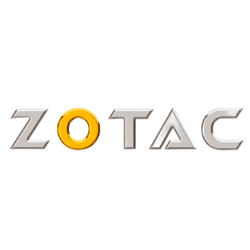
Comparison of Gainward GeForce RTX 3080 Ti Phantom et ZOTAC Gaming GeForce RTX 3090 Trinity It's time to determine which graphics card offers the best performance, what's the difference between them and why?
In front of you is a detailed comparison between the Gainward GeForce RTX 3080 Ti Phantom and the ZOTAC Gaming GeForce RTX 3090 Trinity to help you decide which card is right for your needs. Below we will analyze their specifications, benchmark results and overall performance to help you make the right choice.
Comparing the Gainward GeForce RTX 3080 Ti Phantom to the ZOTAC Gaming GeForce RTX 3090 Trinity in a variety of popular benchmarks reveals key performance differences between the models. Understanding the nuances between these two cards will help you determine the best option for your workload, whether you are a gamer, content creator, or someone who needs raw processing power.
Gainward GeForce RTX 3080 Ti Phantom: boasts a maximum frequency of 1.365 GHz GHz + 6%. It is equipped with 12 GBGB of RAM. The memory type is GDDR6X. It was released in Q3/2021.
ZOTAC Gaming GeForce RTX 3090 Trinity: It has a maximum clock speed of 1.395 GHz GHz. It comes with 24 GBGB of memory. The memory type is GDDR6X. Released in Q1 Q4/2020.
 Raisons de considérer
Raisons de considérer Place dans le classement général
(sur la base de plusieurs critères de référence)
Positions communes Gainward GeForce RTX 3080 Ti Phantom GPU dans des benchmarks populaires, pour comparaison avec d'autres modèles.
 Raisons de considérer
Raisons de considérer Place dans le classement général
(sur la base de plusieurs critères de référence)
Vitesse d'horloge plus élevée
Autour de 2% une meilleure vitesse d'horloge
Plus de mémoire
50% de mémoire supplémentaire
Positions communes ZOTAC Gaming GeForce RTX 3090 Trinity GPU dans des benchmarks populaires, pour comparaison avec d'autres modèles.
 Gainward GeForce RTX 3080 Ti Phantom
Gainward GeForce RTX 3080 Ti Phantom

This section provides a detailed comparison of the fundamental technical specifications of the graphics cards Gainward GeForce RTX 3080 Ti Phantom et ZOTAC Gaming GeForce RTX 3090 Trinity. It includes key information such as the GPU chip architecture, the number of processing units, and other core features that directly impact the overall performance of the cards in various applications, including gaming and professional workloads.
Here is a comparison of memory configurations Gainward GeForce RTX 3080 Ti Phantom et ZOTAC Gaming GeForce RTX 3090 Trinity. It includes details such as the memory size, type (e.g., GDDR6, HBM2), and bandwidth, which are key factors that determine how efficiently the card handles large textures, data sets, and high-resolution tasks.Larger memory sizes are typically beneficial for demanding applications like 4K gaming and video editing.
This section focuses on comparing the clock speeds of Gainward GeForce RTX 3080 Ti Phantom et ZOTAC Gaming GeForce RTX 3090 Trinity. It includes both the base and boost clock speeds, which directly influence the performance of the GPU during intensive tasks. Faster clock speeds typically translate to higher frame rates in games and quicker processing in compute-heavy applications.
This section examines the thermal design of Gainward GeForce RTX 3080 Ti Phantom et ZOTAC Gaming GeForce RTX 3090 Trinity. It includes details such as power consumption (in watts) and thermal output during regular operation and overclocking. Efficient thermal management is essential for maintaining stable performance during long gaming sessions or other demanding tasks.
This section compares the cooling systems of Gainward GeForce RTX 3080 Ti Phantom et ZOTAC Gaming GeForce RTX 3090 Trinity. It includes details about the types of coolers (e.g., blower or open-air) and the number and size of fans, which play a crucial role in maintaining optimal temperatures during operation.Effective cooling is essential for preventing thermal throttling and extending the longevity of the GPU.
This section compares the connectivity options available on Gainward GeForce RTX 3080 Ti Phantom et ZOTAC Gaming GeForce RTX 3090 Trinity. These include the number and type of ports like HDMI, DisplayPort, and others that are essential for connecting displays and external devices.This information helps determine which card offers more versatile or modern connectivity options.
This section compares the technical specifications of Gainward GeForce RTX 3080 Ti Phantom et ZOTAC Gaming GeForce RTX 3090 Trinity. It highlights key features such as API support for DirectX, OpenGL, and Vulkan, which are crucial for running modern games and applications efficiently.These specifications ensure compatibility and optimal performance across a wide range of software environments.
This section compares the support for video codecs on Gainward GeForce RTX 3080 Ti Phantom et ZOTAC Gaming GeForce RTX 3090 Trinity. It highlights the built-in capabilities for compressing and decompressing video formats such as H.264, H.265 (HEVC), and VP9, which are important for tasks like video editing and streaming.
This section compares the physical dimensions of Gainward GeForce RTX 3080 Ti Phantom et ZOTAC Gaming GeForce RTX 3090 Trinity. It includes the size, weight, and slot requirements, which are important considerations for ensuring compatibility with your PC case, especially in smaller or more compact builds.
This section provides additional information about Gainward GeForce RTX 3080 Ti Phantom et ZOTAC Gaming GeForce RTX 3090 Trinity. It covers aspects such as release dates, interface compatibility, and other unique features that might not be covered in other sections.This helps users make a more informed decision about the suitability of each card for their specific use case.
By reviewing the results from several well-known benchmarks, you can more accurately assess the performance differences between Gainward GeForce RTX 3080 Ti Phantom et ZOTAC Gaming GeForce RTX 3090 Trinity.
Compare the synthetic benchmark results and select the best graphics card for your needs!